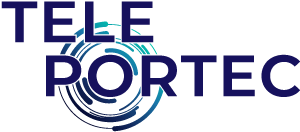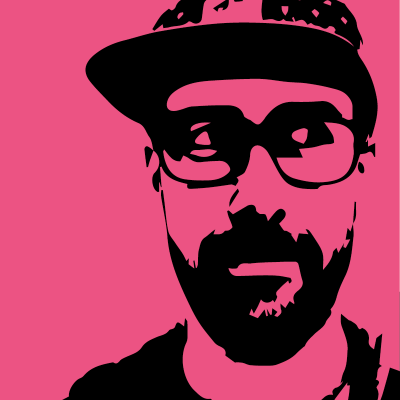As Chief Exponential Officer of Causeit, MJ specializes in helping others understand the mental models necessary to navigate new technologies. MJ is adept at wrangling complexity and identifying possibilities in undefined spaces, and he has extensive experience helping enterprises leverage platforms and platform thinking for exponential growth. His academic background is in Cyborg Anthropology, which examines the relationship between humans and technology. Since founding Causeit in 2006, MJ has helped transform how hundreds of clients think about and work towards the future.
Sample Topics
Agency in Innovation: The Relationship Between Power and Possibility
Once the glow of an “aha!” moment fades, the potential of innovative new offerings is often undermined by organizational power dynamics. Explore ways to transform team relationships based on “power over” vs. “power under” into alignment, or “power with.” Discover why creating alignment—not just compliance—for your team around a big vision is a vital skill for getting great ideas into the real world.
Cybersecurity
Many of the future’s brightest technology use cases require managing security risk without locking data up. How can cybersecurity, as a community and a function, make digital innovation safe enough to move forward without stifling great ideas which necessarily involve risk? When we talk about security, it’s natural to focus on fear and risk—but good security policy can also be driven by hope and possibility, which is a much better climate for innovation.
Data Ethics in the Digital Age
Data is a hot topic for 21st century government and business, from who owns it to how to monetize it. Smart technology, healthcare breakthroughs and improved security are some benefits of digital data collection and analysis. But how to balance opportunities with risks to privacy and liability? Explore the ethical implications of data as commodity and currency.
A Day In the Life with Digital Financial Agents
Financial agents are like digital personal assistants that automate the process of making better financial decisions. What ties them all together is the Social Network of Things, a new era of technology where devices and people are pervasively digitally connected. Explore the potential of these tools to transform daily life.
Digital Financial Platforms: The Evolution of Personal Finance
While the astounding breakthroughs of the Digital Age have been transforming society for decades, our financial systems are still largely rooted in late Industrial Age paradigms and toolsets. Regulation and complexity have made some financial institutions slow to tap into the transformative potential of digital platforms—but not disruptive new financial startups.
From Automobiles to Automobility: Driverless Cars are Just the Beginning
Experience automobility in tomorrow’s smarter city. With traffic increasingly controlled by countless machine-guided decisions, these cities of the future will rely on securely shared multi-sided platforms to connect many modes of transit (cars, public systems and more) into new networks of mobility.
Full-Spectrum Innovation
Digital businesses are easy to talk about, but hard to build. In an age of big data, fickle customer bases and previously impossible levels of scale, strategic partnerships are a necessity. How can your company tap into the full spectrum of innovation through strategic partnership and multi-sided platforms—without straying from your core organizational DNA?
Multi-Sided Platforms: A New Model for Digital Business
Multi-sided platforms (MSPs)—the business model behind digital success stories like the iOS and Android ecosystems—provide a platform where many partners can create customer value while sharing the cost and risk of innovation. Learn new ways to think about business risk and value, and explore how to handle intellectual property and competition among partners.
The Social Network of Things: The Internet of Things Evolved
Explore what happens as the Internet of Things trends toward devices imbued with artificial intelligence and decision-making abilities. Learn about impacts on culture, business strategy, ethics and talent in a world where our devices have their own social networks.
Storytelling for Innovators: How to Talk About Your Great Ideas
To secure funding and support, innovators must pitch their ideas to highlight strategic value, while explaining potential business models, risks and resource needs. But how to do that without losing the excitement and creative spark that made the idea great in the first place? Learn to use innovation theory, digital business thought models, and simple yet powerful storytelling tools to inspire and enroll even the most skeptical stakeholders.
Thinking Styles
While there are plenty of tools for understanding personalities, it’s harder to gain insight into how people think and collaborate. Awareness of your individual Thinking Style helps you leverage your strengths and focus your personal development. In relationships, knowing Thinking Styles helps collaborators play to each other’s strengths. And for organizations and teams, Thinking Styles is a quick and practical tool to accelerate collaboration, increase engagement and improve performance.
Data 101: The Data Supply Chain
We often hear buzzwords about data, with terms like predictive analytics or digital value propositions. But how do they fit together? This guide focuses on data fluency: a shared understanding of how data is disclosed, manipulated and processed—and the implications thereof. This scannable format is designed to help you quickly understand how developers think, what business stakeholders need to understand to be effective in digital efforts, and critical questions to answer at each stage of a data ‘supply chain.’ This is part of a larger conversation about raising digital literacy in yourself and your organization.












